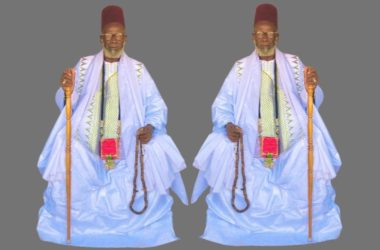
“Suffah” is the name of a particular raised platform in the Mosque of the Holy Prophet (Sallallaho Alaihe Wasallam) in Medina. It used to be occupied by the poor Muslim muhajirin (Plural of muhajir-emigrant from Mecca to Medina) who are known as “Ashab-us-Suffah” (Men of Suffah). The number of these men varied from time to time: ‘Allamah Suyuti (Rahmatullah alaih) has listed one hundred and one names and also written an independent booklet about their names.
But-han and Aqeeq were the two market-places for camels near Medina. The camel, more particularly a she-camel having a fat hump, was a favourite of the Arabs.
The expression “without sin” is significant. A thing can be acquired without labour either by extortion, through illegal inheritance (by forcefully taking over the property of some relative) or by theft. Rasullullah (Sallallaho Alaihe Wasallam) thus ruled out all such acquisitions. Acquiring a thing without any sin is certainly preferred by all, but much more valuable is the learning of a few ayaat.
It is a clear fact that let alone one or two camels, even if one acquires the kingdom of all the seven continents one will be forced to leave it, if not today surely tomorrow (at the time of death), but the reward of one ayat will be everlasting. We see even in this life that a man feels happier when he is given only one rupee (without the condition of returning it), rather than if he is given one thousand rupees for keeping in his safe custody for a while only. In the latter case, he is merely burdened with a trust without getting any benefit out of it.
In fact, this hadith implies an admonition not to compare something temporary with something eternal. Whether in action or at rest, a man should consider if his efforts are being wasted on acquiring the temporary gains of this world, or, are directed towards achieving the everlasting ones. Woe be to the waste of effort for which we earn eternal misery.
The last phrase of the hadith “superior to an equal number of camels” contains three meanings. First, up to the number four, the reward has been mentioned in detail. Beyond this, it is briefly mentioned that the more ayaat a person acquires, the greater will be their superiority over the number of camels. In this case, the word “camels” at the end refers to the species—either he-camels or she-camels—and the number implied is more than four because, up to the number four, the reward has been mentioned in detail.
The second meaning is that the numbers mentioned are the same as referred to earlier, the significance being that inclinations are always different; some are fond of she-camels, others prefer a he-camel. Therefore Rasulullah (Sallallaho Alaihe Wasallam) has used this expression to signify that every ayat is superior to a she-camel, and if one prefers a he-camel, an ayat is also superior to a he-camel. The third meaning is that the numbers mentioned are the same as referred to before and not more than four.
According to the second meaning, the explanation that an ayat is superior to a she-camel or he-camel does not hold good, but it implies a collection, i.e., one ayat is superior to a he-camel and a she-camel considered together, and likewise every ayat is superior to the combination of an equal number of he-camels or she-camels. Thus a single ayat has been compared to a pair or couple (of camels). My late father (May Allah bless his grave with Divine light) has preferred the latter interpretation because it points to a superior virtue.
This however, does not mean that the reward of an ayat can be equaled to a camel or two camels. All this is for inducement and illustration. It has been clearly written before that an ayat whose reward is permanent and enduring is superior and preferable even to a kingdom over the seven continents, which is bound to disintegrate.
Mulla ‘Alt Qari has written an account of a pious Shaikh who went to Mecca for Haj] on the 9th day of Dhul Hijjah—the 12th month of the Islamic calendar. When he landed at Jiddah, some of his friends in business requested him to prolong his stay in Jiddah, so that they could earn more profit for their merchandise by virtue of his blessed presence. In fact they wanted that some of the servants of the Shaikh be benefited by the profits of their business.
At first the Shaikh expressed his inability to prolong his stay, but when they insisted the Shaikh asked them as to the maximum profit that they would earn for their goods. They explained that the profit was not the same in all cases; but the maximum that they could expect was hundred per cent.
The Shaikh said, “You have taken all this trouble for such a petty gain; for such an insignificant gain. I cannot miss the salaat in the respected Haram (the most Sacred Mosque), where the reward of salaat gets multiplied one hundred thousand times.’
In fact, we Muslims should consider how, for petty worldly gains, we sometimes sacrifice great spiritual benefits.
To be continued





